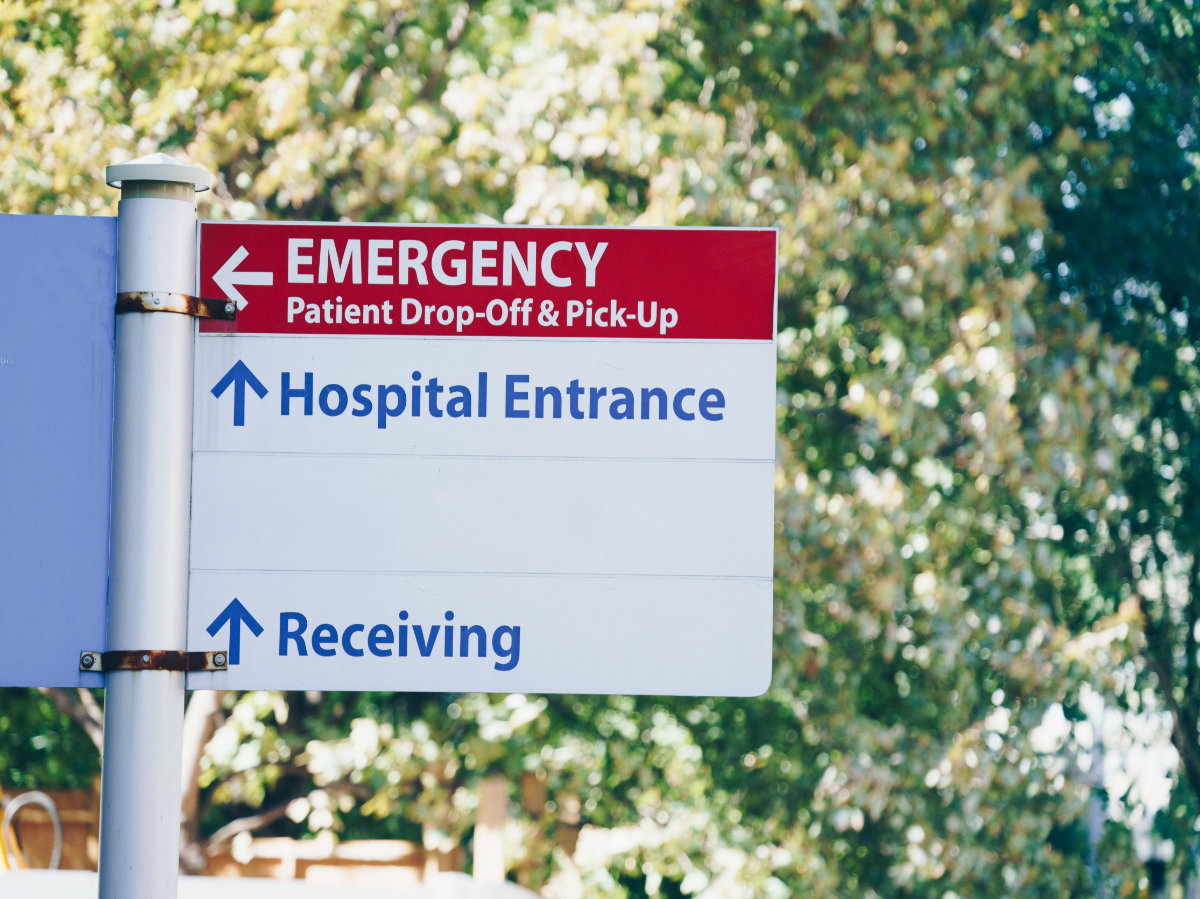
Tips to Protect Yourself from Surprise Medical Bills

Tips to protect yourself from surprise medical bills
Imagine you go to a hospital for a routine procedure. You’ve made sure your hospital and doctor are covered by your health plan. The procedure goes well and you head home to recover. Two weeks later you get the bill, but instead of the copay you expected, you get a bill for thousands of dollars because the anesthesiologist on call at the hospital that day was ‘out-of-network’ for your plan. You’ve received a surprise medical bill and now owe the difference between what your plan will pay the out-of-network anesthesiologist and what you were billed. MASSPIRG along with Health Care for All and Health Law Advocates provide this consumer guide to avoiding surprise medical bills.
What is a “surprise medical bill”?
You receive a surprise medical bill when, through no fault or knowledge of your own, you are treated by providers outside of your health plan network. These out-of-network medical providers can charge exorbitant rates only revealed when the bill arrives in the mail. The average emergency room surprise bill is around $600, but a surprise medical bill can range into the tens of thousands of dollars. When out-of-network providers charge these high rates, it drives up costs for everyone. Consumers are burdened with higher bills that were completely unexpected. And when insurers have to pay more for these higher charges, they pass on those costs to everyone by raising premiums.
Consumer protections from surprise bills
In Massachusetts, currently some patients are protected from some surprise medical bills. It is important to know your rights to protect yourself from these illegal out-of-network charges.
If you are on Medicare, MassHealth, or Veterans Affairs Health Care, you should be fully protected from surprise medical billing.
If you have insurance from a health plan regulated by the state of Massachusetts, you have two important protections from surprise bills.
- Emergency services in an HMO plan
- Certain scheduled hospital services if you were not given information on whether the provider is in your insurance network. If the provider is not in your network, they must do two things:
- Give you an option to use an in-network provider.
- Provide you an estimate of what you would pay out-of-pocket for these scheduled services. (You may ask for this estimate from in-network doctors as well).
- This information must be given to you in writing if you are scheduling the admission more than a week in advance.
- This information must be given verbally at least two days before your admission if it is less than a week away, and given to you in writing when you arrive for your admission.
If an out-of-network provider fails to follow these notice requirements, they can only bill you for whatever copay or coinsurance you would have paid to an in-network provider. If you are offered a chance to choose to use an in-network provider and opt not to, then you will have to pay the full amount for the bills related to your out-of-network care. Always do your best to stay with in-network providers to keep your costs down.
Remember these protections only apply if you have a plan regulated by the state of Massachusetts. If you are unsure whether your plan is state-regulated, contact your insurer or your employer’s Human Resources department. You can also call the Division of Insurance at 617-521-7794.
Unexpected Referrals to Non-Emergency Services
An important new Massachusetts law also requires medical providers to give you information about insurance coverage of other providers if they are making a referral for you. If your doctor or hospital refers you to another medical provider by directly scheduling or ordering tests or other services, your doctor or hospital must first check to be sure that the second provider is in-network. If they are not, then your doctor or hospital must tell you they are referring you to an out-of-network provider before they schedule those services. Always ask for an option to see someone in-network to avoid the added costs of out-of-network care.
What can you do to prevent a surprise medical bill?
Massachusetts law does not protect all patients from all surprise medical bills, so it is important to take steps to avoid out-of-network treatment.
- Check with your insurer to make sure you are choosing a provider that is covered by your insurance. When you schedule appointments at a hospital, ask to confirm that the hospital or health care facility (lab, diagnostic center, surgery center) is in your insurance network before receiving treatment.
- When you schedule appointments or procedures at an in-network hospital, check with the facility to ensure that all providers (surgeons, anesthesiologists, and others), lab services (such as blood work) and imaging services (such as X-rays and MRIs) are in-network for your insurance plan. If you end up getting referred for unexpected tests or consultations, ask again to be sure those providers are in-network for your plan. Be specific in requesting that you want all services you receive to be provided by in-network providers.
- Read any disclosures involving a provider’s network status closely and write down or otherwise note the dates that you are given the information.
- Know your nearest in-network hospital with an emergency room. You may be responsible for bills for emergency treatment if you go to an out-of-network facility.
How to tell if you have received a surprise medical bill?
- Make sure you are looking at an actual bill or invoice. An “Explanation of Benefits” or “Summary of Payments” is not a bill.
- If the bill looks incorrect, call your insurer and ask for more information. Sometimes bills are sent before the insurance company has made its portion of the payment.
- If you think you have received a surprise medical bill, you can use your rights to dispute the charges. But first, be sure it is a situation covered by the state’s consumer protections. Here are a few questions to ask. If you are able to answer yes to all these questions, then you should not have to pay the bill:
- Is your insurance plan state-regulated? If you are unsure whether your plan is state-regulated, you can contact your health plan, your employer’s Human Resources department, or call the Division of Insurance at 617-521-7794.
- Is the bill for more than your typical copay for in-network services?
- Did the doctor, lab or imaging services provider fail to tell you that they were out-of-network, as outlined above in the section “Scheduled hospital visits?”
- Did the doctor or hospital that referred you for any unplanned or unanticipated non-emergency services tell you that the provider was out-of-network?
- If you think you’ve been sent a surprise medical bill you should not have to pay, contact your insurer to file a complaint. Then file a complaint with the Massachusetts Attorney General either online or by calling 1-888-830-6277. You can also contact Health Law Advocates at 888-211-6168 for free legal advice or assistance.
If your bill does not meet all the requirements above, you may still be able to lower the amount you owe. See below “Tips for lowering a medical bill.”
Tips for lowering a medical bill
If you were not able to prevent an out-of-network charge or you think your bill is incorrect, use these tips to attempt to lower a medical bill.
- Ask for an itemized bill and check that you are not being mistakenly billed for treatment you did not receive.
- Compare the itemized bill to the Explanation of Benefits or Summary of Payments you received from your health plan to see whether your plan is paying its correct portion of the service or visit. Sometimes, patients are billed for services because their provider sent the wrong billing code to the plan.
- Contact your provider and ask about anything on the bill that you don’t understand.
- Contact your plan to see if your bill was a mistake.
- If there are no mistakes, try negotiating with your provider. Many hospitals have patient advocate departments to help you negotiate the bill, and non-profit hospitals have a legal duty to give partial or even full discounts to all consumers who are income-eligible.
- Keep careful notes of all conversations you have. Get the names of the people you are speaking to and keep your files in one place for easy access.
- Be patient and clear in your requests.
- Don’t delay in handling concerns and questions so that the bill does not go into collections.
- Contact the office of the Massachusetts Attorney General at 1-888-830-6277. They may be able to help you fight the bill. You can also contact Health Law Advocates at 888-211-6168 for free legal advice or assistance.
Special information during the COVID-19 pandemic
Massachusetts passed legislation which protects you from surprise medical billing related to coronavirus treatment by out-of-network facilities and providers. This protection applies to care you receive for emergency, inpatient services and cognitive rehabilitation services, including all professional, diagnostic and laboratory services related to COVID-19. If you are admitted to an out-of-network facility, treated by an out-of-network provider, or receive any out-of-network treatment for any of these services, you cannot receive a surprise bill. If you do, contact your insurer and follow the steps outlined above.
Testing for COVID-19 is free for both insured and uninsured consumers. Health plans are required to cover the cost of testing (even if you don’t have symptoms or have not been exposed to someone with COVID-19). This means that if you want to be tested for any reason, such as before visiting a family member, your insurance must pay for the test and cannot bill you for any copay, coinsurance, or deductible. If you do receive a bill for these services, use the tips above to fight it.
Even though the test is free, many people have been billed for other fees, such as a “facility fee.” When you choose a testing site, call to be sure there are no additional fees. In Massachusetts, you can also be tested at CVS, Walgreens, eTrueNorth, Health Mart, and Rite Aid at no cost. You do not need a referral to be tested at these pharmacies, but you do have to arrange an appointment beforehand. To find out more about COVID testing in your state, use this resource.
Note on vaccines: Many Americans are now able to get a COVID-19 vaccine. These vaccines are free and insurance plans are required to pay for any associated administration costs without cost-sharing. If you do receive a bill related to your COVID-19 vaccine appointment, contact your insurer. You are not required to pay any cost-sharing (copay, coinsurance, or deductible) related to getting a vaccine against the COVID-19 virus.
More consumer protections are coming in January 2022
In a victory for consumers, Congress passed the No Surprises Act to expand surprise billing protections to all insured Americans. This new law will greatly improve protections for all Massachusetts residents. The law will prohibit out-of-network providers sending surprise bills to patients for emergency services or services at in-network facilities. It also prevents surprise bills for transportation by air ambulances.
Updated June 18, 2021
Topics
Authors
Deirdre Cummings
Legislative Director, MASSPIRG
Deirdre runs MASSPIRG’s public health, consumer protection and tax and budget programs. Deirdre has led campaigns to improve public records law and require all state spending to be transparent and available on an easy-to-use website, close $400 million in corporate tax loopholes, protect the state’s retail sales laws to reduce overcharges and preserve price disclosures, reduce costs of health insurance and prescription drugs, and more. Deirdre also oversees a Consumer Action Center in Weymouth, Mass., which has mediated 17,000 complaints and returned $4 million to Massachusetts consumers since 1989. Deirdre currently resides in Maynard, Mass., with her family. Over the years she has visited all but one of the state's 351 towns — Gosnold.
Find Out More

Junk fees should be banned, U.S. PIRG tells FTC

How to use iPhone privacy settings 2024

5 steps you can take to protect your privacy now

